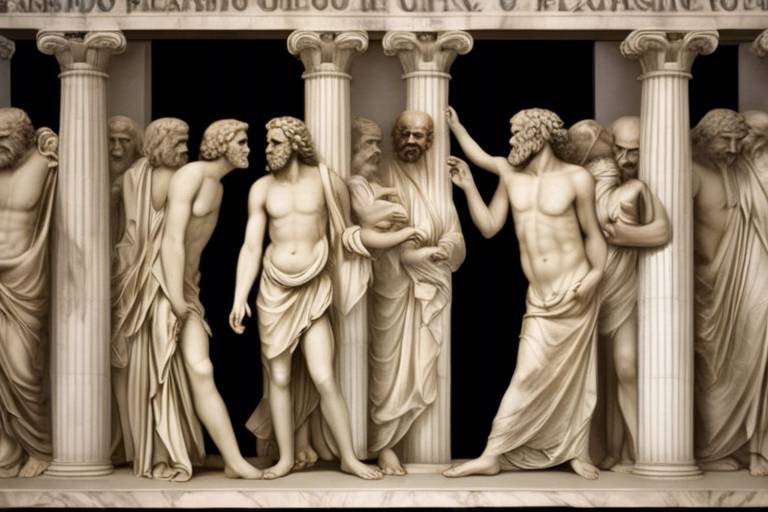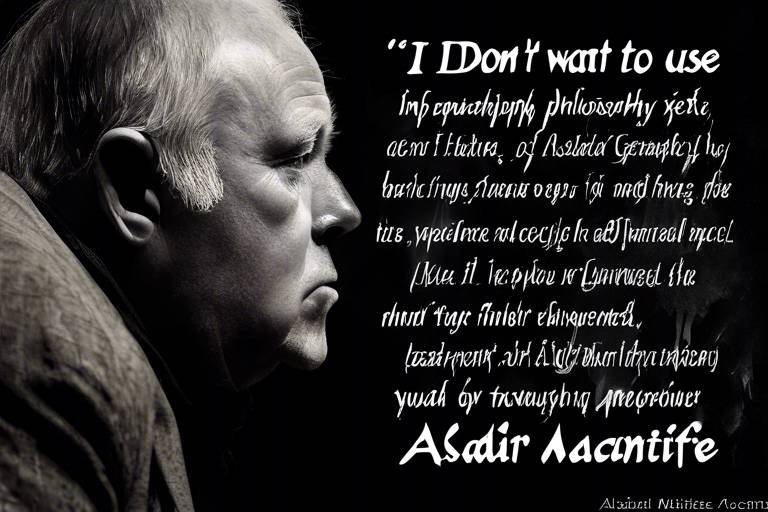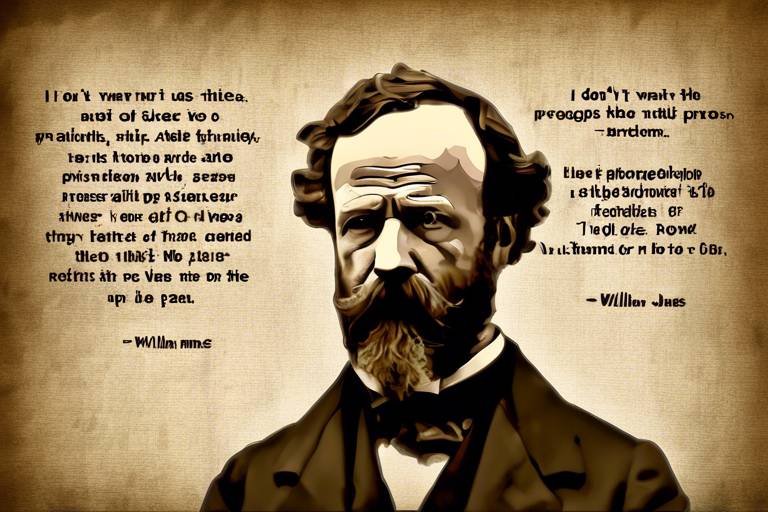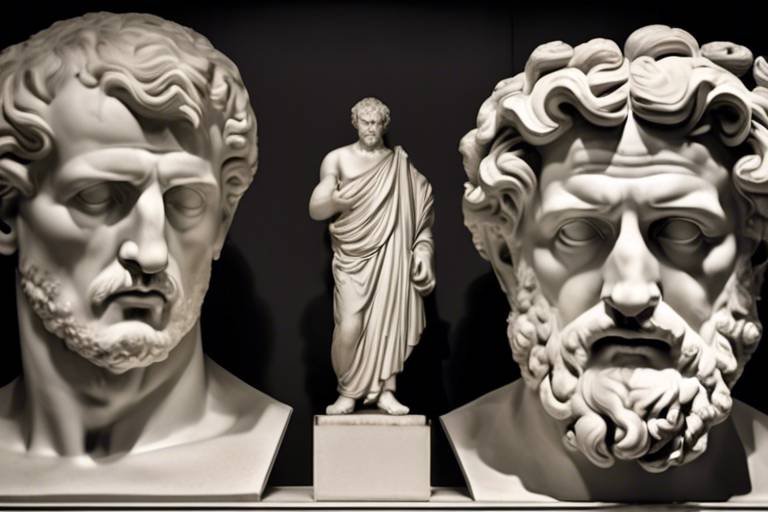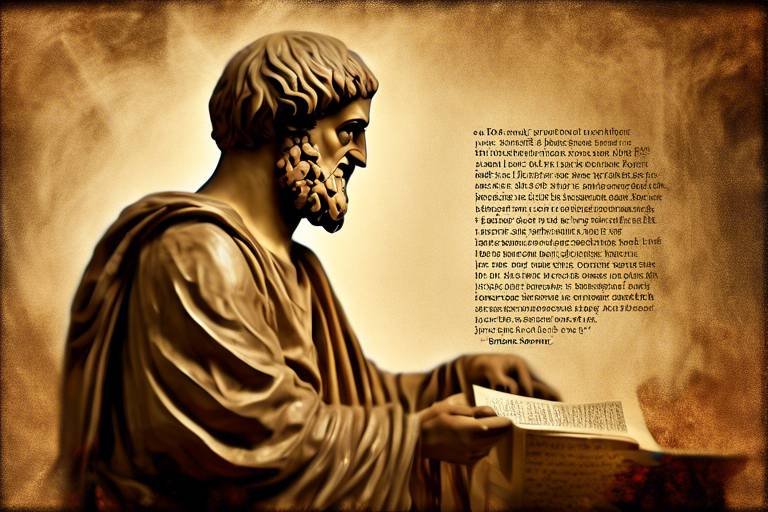Existentialist Themes in Albert Camus’s The Plague
Albert Camus's novel The Plague is not just a tale of a city besieged by disease; it is a profound exploration of existential themes that resonate deeply with the human condition. Through the lens of a plague outbreak in the Algerian town of Oran, Camus invites readers to grapple with the complexities of existence, the absurdity of life, and the relentless search for meaning in a world that often feels chaotic and indifferent. The narrative unfolds as a mirror reflecting our own struggles, fears, and the universal quest for purpose amidst despair.
At its core, The Plague serves as a philosophical inquiry into the nature of human existence. As we follow the characters through their trials, we witness how they confront the absurdity that life presents. The randomness of suffering and the inevitability of death compel individuals to seek meaning, even when faced with overwhelming chaos. Camus masterfully illustrates that while life may seem devoid of purpose, it is through our responses to these challenges that we can forge our own significance. This theme resonates with many readers, prompting them to reflect on their own lives and the absurdities they encounter daily.
Moreover, the novel encapsulates the essence of human resilience. In the face of despair, the characters exhibit an indomitable spirit, showcasing the strength inherent in humanity. They grapple with existential crises, yet they find ways to endure and support one another. This resilience is not just a personal endeavor; it's a collective experience. As the plague ravages Oran, the shared suffering fosters a sense of community, reminding us that even in our darkest moments, we are not alone. Camus suggests that through connection and solidarity, we can confront our fears and find solace in our shared humanity.
Yet, this journey is not without its tensions. The struggle between isolation and solidarity emerges as a recurring theme. Characters oscillate between the desire for connection and the haunting solitude that accompanies their existential dread. As they navigate their fears, they discover that forming bonds with others can be a powerful antidote to isolation. Camus poignantly illustrates that while we may feel trapped in our own minds, reaching out to others can provide a sense of purpose and belonging.
Furthermore, The Plague emphasizes the importance of personal responsibility. In a world stripped of inherent meaning, characters are confronted with the weight of their choices and actions. Camus underscores that it is through our decisions that we shape our existence. This notion of personal agency resonates strongly, prompting readers to consider their own responsibilities in the face of life's absurdities. The characters’ journeys serve as a reminder that while the universe may be indifferent, we possess the power to define our paths.
As we delve deeper into the narrative, we observe the characters embarking on a quest for meaning. This search is emblematic of existentialist beliefs, where individuals must create their own purpose in an indifferent universe. Camus paints a vivid picture of this struggle, illustrating how the characters grapple with their desires and aspirations while confronting the harsh realities of life. The quest for meaning becomes a central theme, urging readers to reflect on their own pursuits and the significance they attach to their experiences.
Death, an ever-present specter in the novel, serves as a catalyst for introspection. Characters are forced to confront their mortality, prompting profound reflections on existence. Through these confrontations, Camus explores the role of suffering as an integral part of the human experience. Suffering, often perceived as a burden, is depicted as a pathway to understanding and significance. The characters' struggles with pain and loss ultimately lead them to a deeper comprehension of themselves and their place in the world.
In conclusion, The Plague is a rich tapestry of existential themes that invites readers to reflect on the absurdity of life, the resilience of the human spirit, and the quest for meaning. Camus's exploration of these concepts is not merely academic; it is a deeply personal journey that resonates with anyone who has grappled with their own existence. As we navigate our lives, we are reminded that while the world may be chaotic and indifferent, it is our responses to these challenges that define us.
- What is the main theme of The Plague? The main theme revolves around existentialism, exploring the absurdity of life, human resilience, and the quest for meaning in a chaotic world.
- How does Camus portray suffering in the novel? Suffering is depicted as an essential part of the human experience, challenging characters to find significance through their struggles.
- What role does personal responsibility play in The Plague? Personal responsibility is crucial as characters confront their choices and actions in a world without inherent meaning.
- How does the concept of solidarity versus isolation manifest in the story? The tension between solidarity and isolation highlights how individuals cope with existential fears through connections with others while grappling with their solitude.
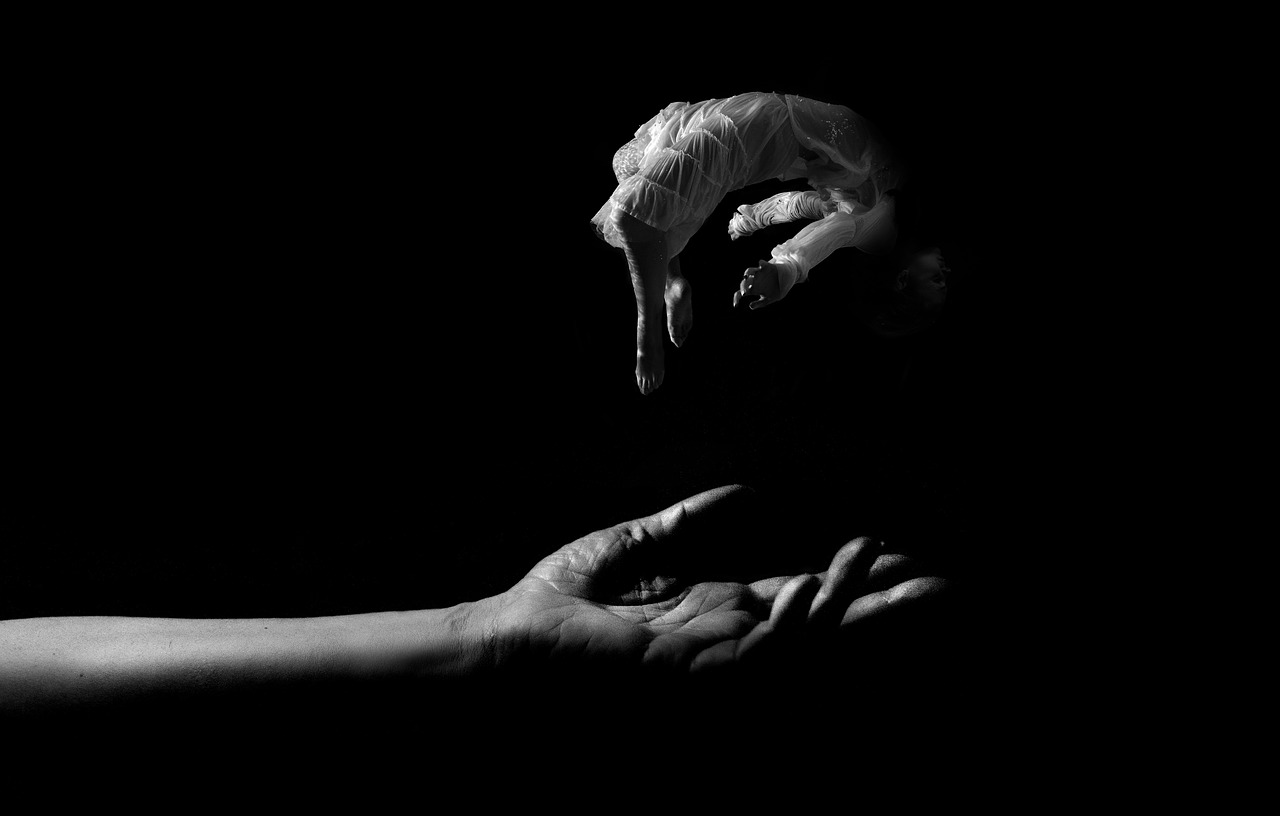
The Plague,
This article explores the existentialist themes present in Albert Camus's novel The Plague, examining how they reflect human existence, absurdity, and the search for meaning in a chaotic world.
In The Plague, Camus illustrates the concept of absurdity, showcasing how the randomness of life challenges individuals to find meaning despite overwhelming chaos and suffering. The narrative unfolds in the Algerian town of Oran, where a sudden outbreak of bubonic plague disrupts the mundane lives of its residents. This unexpected calamity serves as a stark reminder that life is unpredictable, and often, it feels like we are merely pawns in a game we do not understand. The absurdity of existence is palpable as characters grapple with the question: What is the purpose of life when faced with such senseless suffering? Camus invites readers to consider how they might react when their sense of normalcy is shattered, pushing them towards introspection.
The novel highlights the resilience of humanity in the face of despair, emphasizing the strength of the human spirit when confronted with existential crises and the inevitability of death. As the plague ravages Oran, individuals are forced to confront their vulnerabilities and fears. Yet, amidst the despair, there emerges a profound sense of determination. Characters like Dr. Rieux and Tarrou embody this resilience, choosing to fight against the plague rather than succumb to hopelessness. This struggle against the inevitable reflects a fundamental truth about human nature: we possess an innate drive to seek meaning and purpose, even in the darkest of times.
Camus portrays the collective experience of the plague, demonstrating how shared suffering can unite individuals and foster a sense of community, even amidst existential dread. The townspeople, initially isolated in their own fears, gradually come together to combat the common enemy. This solidarity serves as a powerful counterpoint to the isolation that the plague brings. The shared experience of suffering creates bonds that transcend individual struggles, illustrating that in times of crisis, we often find strength in one another. The community’s response to the plague becomes a testament to the resilience of the human spirit, highlighting the importance of connection in overcoming adversity.
The tension between isolation and solidarity is a recurring theme, illustrating how individuals cope with existential fears through connections with others while grappling with their solitude. As the plague isolates people physically, it also forces them to confront their internal struggles. Characters experience profound loneliness, yet they also find solace in the relationships they form. Camus suggests that while isolation may be an inevitable aspect of the human condition, the bonds we create with others can provide a lifeline in moments of despair. This duality raises the question: Can true solidarity exist without the shadow of isolation?
The narrative underscores the importance of personal responsibility, as characters must confront their choices and actions in a world devoid of inherent meaning. In the face of the plague, each character is faced with moral dilemmas that force them to evaluate their values and beliefs. Dr. Rieux, for instance, embodies the idea of taking responsibility for the suffering of others, choosing to act rather than remain passive. This emphasis on personal agency resonates with existentialist thought, which posits that individuals must create their own meaning through their actions. The question of moral responsibility becomes central: How do we choose to respond in a world that often seems indifferent to our struggles?
Characters in The Plague embark on a quest for meaning, reflecting existentialist beliefs that individuals must create their own purpose in an indifferent universe. The plague serves as a catalyst for self-discovery, prompting characters to confront their beliefs and desires. For many, the search for meaning becomes a journey fraught with uncertainty and doubt. Camus illustrates that while the universe may be devoid of inherent meaning, it is through our struggles and connections that we can forge our own paths. This existential journey compels readers to ponder their own searches for meaning in a world filled with chaos.
Death serves as a central theme in the novel, prompting characters to confront their mortality and consider the implications of their existence in a world marked by suffering. The omnipresence of death in The Plague forces characters to reflect on their lives and the choices they have made. This confrontation with mortality is not merely a source of fear; it also serves as a catalyst for growth and understanding. Camus suggests that by acknowledging our mortality, we can find a deeper appreciation for life and its fleeting nature.
Suffering is depicted as an essential component of the human experience, challenging characters to find significance and understanding through their struggles with pain and loss. In The Plague, suffering is not just a backdrop; it is a transformative force that shapes the characters' identities. Through their experiences, they learn about compassion, empathy, and the interconnectedness of human lives. Camus posits that it is through suffering that we can truly grasp the value of our existence and the importance of our connections with others.
Camus emphasizes existential freedom, illustrating how characters navigate their choices and the consequences of their actions in a world where traditional moral frameworks are absent. The characters are faced with the burden of freedom, which comes with the responsibility to choose their paths. This freedom is both liberating and daunting, as it forces individuals to confront the weight of their decisions. Camus encourages readers to embrace this freedom, suggesting that it is through our choices that we can carve out our own meanings in an often chaotic and indifferent universe.
- What are the main existential themes in The Plague?
The main themes include absurdity, human resilience, the search for meaning, and confrontation with death.
- How does Camus portray the concept of absurdity?
Camus illustrates absurdity through the randomness of life and the challenges individuals face in finding meaning amidst chaos.
- What role does suffering play in the novel?
Suffering is depicted as a transformative experience that challenges characters to find significance and understanding.
- How does The Plague address the theme of personal responsibility?
The narrative emphasizes that individuals must confront their choices and actions in a world devoid of inherent meaning.
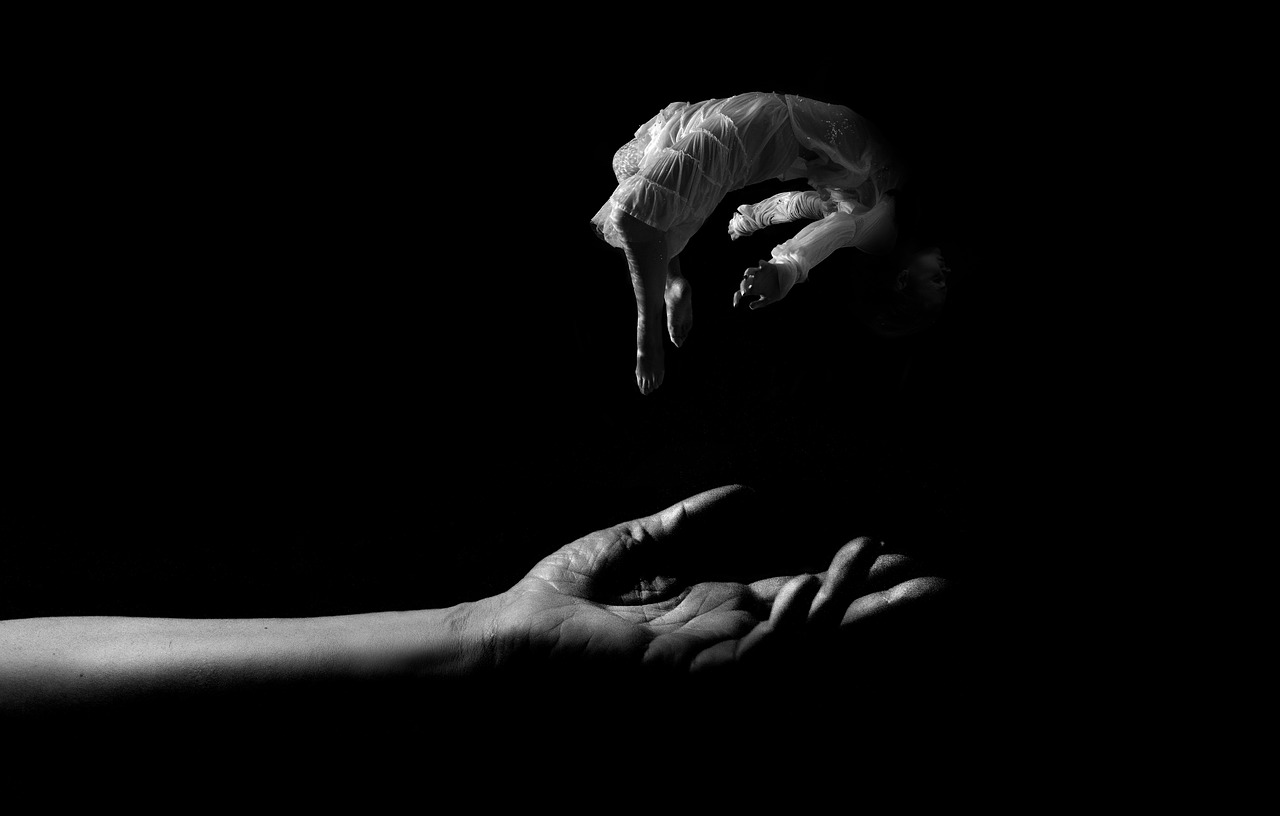
examining how they reflect human existence, absurdity, and the search for meaning in a chaotic world.
This article explores the existentialist themes present in Albert Camus's novel The Plague, examining how they reflect human existence, absurdity, and the search for meaning in a chaotic world.
In The Plague, Camus illustrates the concept of absurdity, showcasing how the randomness of life challenges individuals to find meaning despite overwhelming chaos and suffering.
The novel highlights the resilience of humanity in the face of despair, emphasizing the strength of the human spirit when confronted with existential crises and the inevitability of death.
Camus portrays the collective experience of the plague, demonstrating how shared suffering can unite individuals and foster a sense of community, even amidst existential dread.
The tension between isolation and solidarity is a recurring theme, illustrating how individuals cope with existential fears through connections with others while grappling with their solitude.
The narrative underscores the importance of personal responsibility, as characters must confront their choices and actions in a world devoid of inherent meaning.
Characters in The Plague embark on a quest for meaning, reflecting existentialist beliefs that individuals must create their own purpose in an indifferent universe.
Death serves as a central theme in the novel, prompting characters to confront their mortality and consider the implications of their existence in a world marked by suffering.
Suffering is depicted as an essential component of the human experience, challenging characters to find significance and understanding through their struggles with pain and loss.
Camus emphasizes existential freedom, illustrating how characters navigate their choices and the consequences of their actions in a world where traditional moral frameworks are absent.
In The Plague, Camus effectively examines the intricate tapestry of human existence, underscoring the absurdity that permeates our lives. The characters are thrust into a chaotic world where a deadly plague disrupts their routines and forces them to confront the fragility of life. This absurdity is not merely a backdrop; it serves as a catalyst for introspection, pushing individuals to ask themselves profound questions about their purpose and the nature of existence.
As the narrative unfolds, we witness how the characters grapple with their own insignificance in the grand scheme of the universe. They are faced with the stark reality that life can be unpredictable and often cruel. This realization resonates with readers, as it reflects our own struggles to find meaning in a world that can seem overwhelmingly chaotic. The absurdity of their situation becomes a mirror, reflecting our existential dilemmas and prompting us to consider how we cope with the randomness of life.
Moreover, Camus illustrates that the search for meaning is not a solitary endeavor. Through the experiences of the townspeople, we see how relationships and community play a crucial role in navigating the absurdity of existence. In moments of despair, characters find solace in one another, demonstrating that connection and solidarity are essential in the face of chaos. This collective experience of suffering and resilience highlights the human capacity to forge meaning through shared struggles, reminding us that we are not alone in our quest for understanding.
Ultimately, Camus challenges us to embrace the absurdity of life rather than shy away from it. He suggests that while we may never find definitive answers to our existential questions, the act of searching itself is what gives life its richness. In this way, The Plague serves as a poignant exploration of the human condition, urging us to confront our fears, embrace our freedom, and create our own meaning amidst the chaos.
- What is the main theme of The Plague?
The main theme revolves around the absurdity of life and the search for meaning in the face of suffering. - How does Camus portray human resilience?
Camus illustrates human resilience through characters who confront despair and find strength in community and personal responsibility. - What role does suffering play in the novel?
Suffering is depicted as an essential part of the human experience, challenging characters to seek significance in their struggles. - What is existential freedom in The Plague?
Existential freedom refers to the characters’ ability to navigate their choices and the consequences of their actions in an indifferent universe.

The Absurdity of Life
In The Plague, Albert Camus masterfully illustrates the concept of absurdity, which serves as a cornerstone of existentialist thought. Life, as depicted in the novel, is a chaotic tapestry woven with threads of randomness and unpredictability. Imagine waking up one day to find your world turned upside down by an unforeseen plague; this is precisely what happens to the citizens of Oran. Their lives, once filled with routine and predictability, are suddenly engulfed by a senseless epidemic that challenges their understanding of existence. Camus uses this backdrop to highlight the absurd condition of humanity, where individuals are left to grapple with the question: how do we find meaning in a world that often seems devoid of it?
Camus argues that the absurdity of life is not merely a philosophical concept but a palpable reality that we all must confront. The characters in the novel experience this firsthand. As they face the relentless advance of the plague, they are forced to reevaluate their beliefs, relationships, and ultimately, their purpose. The randomness of the disease serves as a metaphor for life's unpredictability, reminding us that control is often an illusion. In a world where suffering is inevitable, how can one maintain hope and seek meaning?
Throughout the narrative, Camus encourages readers to embrace the absurd rather than succumb to despair. He suggests that acknowledging the absurdity of life can lead to a form of liberation. Instead of searching for external validation or meaning, individuals can find strength in their own experiences and choices. This perspective is akin to standing in the eye of a storm—while chaos swirls around, there exists a calm center where one can reflect and make sense of their existence.
To further illustrate this theme, consider the following table that summarizes key aspects of absurdity as depicted in The Plague:
| Aspect | Description |
|---|---|
| Randomness | Life is unpredictable and often throws challenges without warning. |
| Isolation | Individuals may feel isolated in their struggles, yet they share a common human experience. |
| Search for Meaning | Characters must create their own meaning amidst chaos and suffering. |
| Acceptance | Embracing the absurd can lead to personal freedom and resilience. |
Ultimately, Camus’s exploration of absurdity in The Plague serves as a poignant reminder of the human condition. It compels us to look beyond the chaos and find our own paths to meaning. So, the next time life throws you a curveball, remember that in the face of absurdity, you have the power to define your own existence. After all, as Camus suggests, it is not the situation itself that defines us, but how we respond to it.

The Plague,
This article explores the existentialist themes present in Albert Camus's novel The Plague, examining how they reflect human existence, absurdity, and the search for meaning in a chaotic world.
In The Plague, Camus illustrates the concept of absurdity, showcasing how the randomness of life challenges individuals to find meaning despite overwhelming chaos and suffering. The narrative thrusts its characters into a surreal reality where they must grapple with the unpredictable nature of existence. Just like a game of dice, life throws unexpected challenges, and it’s up to us to make sense of them. The absurdity is not just a backdrop; it’s a character in itself, pushing the protagonists to confront their beliefs and values amidst the turmoil.
The novel highlights the resilience of humanity in the face of despair, emphasizing the strength of the human spirit when confronted with existential crises and the inevitability of death. Camus paints a vivid picture of individuals who, despite being engulfed by despair, find ways to endure. They become like the phoenix rising from the ashes, showcasing that even in the darkest times, there’s a flicker of hope. This resilience is not just a trait; it’s a necessity for survival in a world that seems indifferent to human suffering.
Camus portrays the collective experience of the plague, demonstrating how shared suffering can unite individuals and foster a sense of community, even amidst existential dread. The characters in The Plague learn that they are not alone in their struggles. The plague acts as a catalyst for connection, turning isolation into solidarity. In moments of crisis, people often band together, sharing their fears, hopes, and resources. This shared experience becomes a lifeline, reminding us that while we may face our battles alone, there’s strength in numbers.
The tension between isolation and solidarity is a recurring theme, illustrating how individuals cope with existential fears through connections with others while grappling with their solitude. The characters oscillate between moments of profound loneliness and the warmth of community. Camus skillfully navigates this duality, showing that while isolation can lead to despair, it can also push individuals to seek out companionship. It’s a dance between the desire for connection and the fear of vulnerability, a theme that resonates deeply in our own lives.
The narrative underscores the importance of personal responsibility, as characters must confront their choices and actions in a world devoid of inherent meaning. In The Plague, every character faces a moral crossroads, forcing them to take ownership of their decisions. This notion of responsibility is significant; it’s a reminder that in the face of absurdity, we are the architects of our own lives. Just like the characters, we must navigate our paths, making choices that define who we are in a chaotic universe.
Characters in The Plague embark on a quest for meaning, reflecting existentialist beliefs that individuals must create their own purpose in an indifferent universe. This search is not linear; it’s filled with doubts, revelations, and setbacks. Each character’s journey is unique, yet they all share a common thread—the desire to find significance in their existence. Camus intricately weaves this theme throughout the narrative, inviting readers to ponder their own quests for meaning in a world that often feels senseless.
Death serves as a central theme in the novel, prompting characters to confront their mortality and consider the implications of their existence in a world marked by suffering. The plague acts as a grim reminder of life’s fragility, forcing individuals to reflect on what it means to live fully. In this confrontation, characters are challenged to reassess their values and desires, leading to profound transformations. Camus invites us to embrace the inevitability of death, suggesting that it’s through this acceptance that we can truly appreciate life.
Suffering is depicted as an essential component of the human experience, challenging characters to find significance and understanding through their struggles with pain and loss. In The Plague, suffering is not merely an obstacle; it’s a teacher. The characters learn valuable lessons through their trials, discovering resilience, empathy, and the strength of the human spirit. This portrayal of suffering as a catalyst for growth resonates deeply, reminding us that pain often leads to profound insights and connections.
Camus emphasizes existential freedom, illustrating how characters navigate their choices and the consequences of their actions in a world where traditional moral frameworks are absent. In this freedom, however, lies a heavy burden; the characters must grapple with the weight of their decisions, understanding that they are the authors of their own destinies. This exploration of freedom is both liberating and daunting, as it challenges us to embrace our autonomy while acknowledging the complexities of our choices.
- What are the main existential themes in The Plague?
The main themes include absurdity, human resilience, the search for meaning, confrontation with death, and existential freedom. - How does Camus portray suffering in the novel?
Suffering is depicted as a crucial aspect of the human experience that leads to personal growth and deeper understanding. - What is the significance of collective experience in the story?
The shared suffering during the plague fosters a sense of community and solidarity among the characters, illustrating the power of human connection.

Camus illustrates the concept of absurdity, showcasing how the randomness of life challenges individuals to find meaning despite overwhelming chaos and suffering.
This article explores the existentialist themes present in Albert Camus's novel The Plague, examining how they reflect human existence, absurdity, and the search for meaning in a chaotic world.
In The Plague, Camus illustrates the concept of absurdity, showcasing how the randomness of life challenges individuals to find meaning despite overwhelming chaos and suffering. The narrative unfolds in the Algerian city of Oran, where an unexpected outbreak of plague disrupts the mundane routines of its inhabitants. This sudden chaos acts as a metaphor for life's unpredictability, forcing characters to confront the harsh reality that existence often lacks inherent meaning. Just as the plague appears without warning, so too do the challenges and tribulations of life, leaving individuals grappling with the absurdity of their circumstances.
As the characters navigate this turmoil, they are faced with a profound question: how can one find purpose in a world that seems indifferent to human suffering? Camus suggests that the answer lies not in seeking external validation or meaning, but in the very act of living itself. The absurdity of life, rather than being a source of despair, can serve as a catalyst for personal growth. By embracing the chaos and acknowledging the randomness of existence, individuals can carve out their own significance amidst the turmoil.
For instance, the character of Dr. Rieux embodies this struggle as he fights tirelessly against the plague, not for glory or recognition, but simply because it is his duty. His actions reflect a deep understanding that while life may be chaotic and often unfair, it is through our responses to these challenges that we can assert our humanity. In this way, Camus invites readers to consider their own lives—how do we respond to the absurdity that surrounds us? Do we succumb to despair, or do we rise to the occasion, finding meaning in our struggles?
Ultimately, The Plague serves as a powerful reminder that while we may not control the circumstances of our lives, we do have the ability to shape our responses. The randomness of life may present us with suffering, but it also offers opportunities for connection, resilience, and personal growth. By confronting the absurdity head-on, we can discover a sense of purpose that transcends the chaos, allowing us to live authentically and fully in an unpredictable world.
The novel highlights the resilience of humanity in the face of despair, emphasizing the strength of the human spirit when confronted with existential crises and the inevitability of death.
Camus portrays the collective experience of the plague, demonstrating how shared suffering can unite individuals and foster a sense of community, even amidst existential dread.
The tension between isolation and solidarity is a recurring theme, illustrating how individuals cope with existential fears through connections with others while grappling with their solitude.
The narrative underscores the importance of personal responsibility, as characters must confront their choices and actions in a world devoid of inherent meaning.
Characters in The Plague embark on a quest for meaning, reflecting existentialist beliefs that individuals must create their own purpose in an indifferent universe.
Death serves as a central theme in the novel, prompting characters to confront their mortality and consider the implications of their existence in a world marked by suffering.
Suffering is depicted as an essential component of the human experience, challenging characters to find significance and understanding through their struggles with pain and loss.
Camus emphasizes existential freedom, illustrating how characters navigate their choices and the consequences of their actions in a world where traditional moral frameworks are absent.
- What is the main theme of The Plague? The main theme revolves around the absurdity of life and the human struggle to find meaning amidst chaos and suffering.
- How does Camus portray human resilience? Camus illustrates human resilience through characters who confront despair and take personal responsibility for their actions.
- What does The Plague say about death? The novel emphasizes the inevitability of death and encourages characters to confront their mortality to find purpose in their existence.
- How does the concept of absurdity manifest in the novel? Absurdity is depicted through the randomness of the plague, challenging characters to create their own meaning in an indifferent universe.

Human Resilience
In Albert Camus's The Plague, the theme of human resilience shines brightly amidst the darkness of despair. The characters in the novel face an insurmountable challenge as the plague ravages their town, yet it is their response to this crisis that truly defines them. Rather than succumbing to hopelessness, they embody a spirit of perseverance that is both inspiring and profoundly human. This resilience is not merely a reaction to suffering; it is a testament to the strength of the human spirit when confronted with the inevitability of death and chaos.
Take, for instance, the character of Dr. Rieux. He tirelessly works to alleviate the suffering of others, embodying the essence of resilience through action. His commitment to his patients, even when faced with the grim reality of the plague, illustrates a fundamental truth: that in the face of overwhelming odds, individuals can rise above their circumstances. It raises an important question—what drives people to act selflessly in times of crisis? Is it an innate desire to find meaning through their suffering, or is it a deep-seated need to connect with others?
Moreover, Camus highlights the power of community in fostering resilience. As the townspeople grapple with their shared plight, they begin to understand that they are not alone in their suffering. This collective experience becomes a source of strength, as they unite to confront the plague together. The narrative suggests that through shared suffering, individuals can forge bonds that not only help them endure but also empower them to find purpose in their struggle. It's a beautiful paradox: in their darkest moments, they discover the light of human connection.
To further illustrate this point, consider the following aspects of resilience depicted in the novel:
- Empathy and Compassion: The characters demonstrate profound empathy towards one another, which fosters a sense of solidarity.
- Determination to Fight: Many characters, like Rieux and Tarrou, embody a relentless determination to combat the plague, showcasing their refusal to give in to despair.
- Finding Meaning: Through their struggles, characters like Grand learn that even mundane actions can hold significant meaning, reinforcing the idea that purpose is often self-created.
In essence, Camus's portrayal of human resilience serves as a reminder that even in the face of existential dread, individuals possess an incredible capacity to endure and to find strength in their shared humanity. This resilience is not a denial of suffering but rather an acknowledgment of it, coupled with a commitment to rise above. It begs the question: how do we, as individuals, respond to our own crises? Are we willing to embrace the struggle, to forge connections, and to seek meaning in our pain?
| Question | Answer |
|---|---|
| What is the main theme of human resilience in The Plague? | It highlights how individuals can rise above suffering and find strength in community and shared experiences. |
| How does Camus illustrate the importance of empathy? | Through characters' interactions, showing that compassion can foster solidarity and resilience in the face of adversity. |
| Can resilience be learned? | Yes, resilience can be cultivated through experiences, relationships, and a commitment to finding meaning in struggles. |

Collective Experience
In Albert Camus’s The Plague, the notion of collective experience emerges as a profound theme, intricately woven into the fabric of the narrative. The plague, a devastating force, does not discriminate; it sweeps through the town of Oran, binding its inhabitants in a shared struggle against an unseen enemy. This shared suffering becomes a catalyst for unity, as individuals, who may have previously lived in isolation, are thrust into a communal battle for survival. It’s fascinating how adversity can transform strangers into allies, don’t you think?
Throughout the novel, we witness characters like Dr. Rieux, Tarrou, and Rambert navigating their own personal crises while simultaneously confronting the collective horror of the plague. Their experiences illustrate that in times of crisis, the boundaries that typically separate us can dissolve, revealing a deeper connection among humanity. As they grapple with their fears and uncertainties, they come to realize that they are not alone in their suffering. This realization fosters a sense of solidarity, which is crucial for their emotional survival.
Camus poignantly illustrates this collective experience through various interactions among characters. For instance, the selfless acts of individuals, such as Rieux's tireless work to care for the sick, serve as a reminder that even in the darkest of times, humanity can shine through. The characters begin to understand that their fates are intertwined, leading them to form bonds that transcend their individual struggles. This unity is essential, as it provides them with the strength to face the absurdity of their situation.
Moreover, the plague acts as a mirror, reflecting the complexities of human relationships. The characters' responses to the crisis reveal different aspects of their personalities, showcasing a spectrum of reactions—from despair to hope. The shared experience of suffering allows them to confront their own fears and insecurities, ultimately leading to personal growth and a deeper understanding of themselves and each other. It’s as if the plague serves not only as a physical ailment but also as a profound teacher, prompting introspection and connection.
In essence, the collective experience in The Plague encapsulates the idea that while suffering is an individual journey, it is also a communal one. The shared trauma of the plague becomes a powerful force that binds the townspeople together, fostering a sense of belonging amidst chaos. Camus masterfully captures this dynamic, reminding us that even in the face of overwhelming despair, there lies a potential for unity and shared purpose. After all, isn't it in our darkest moments that we often find the strongest connections?
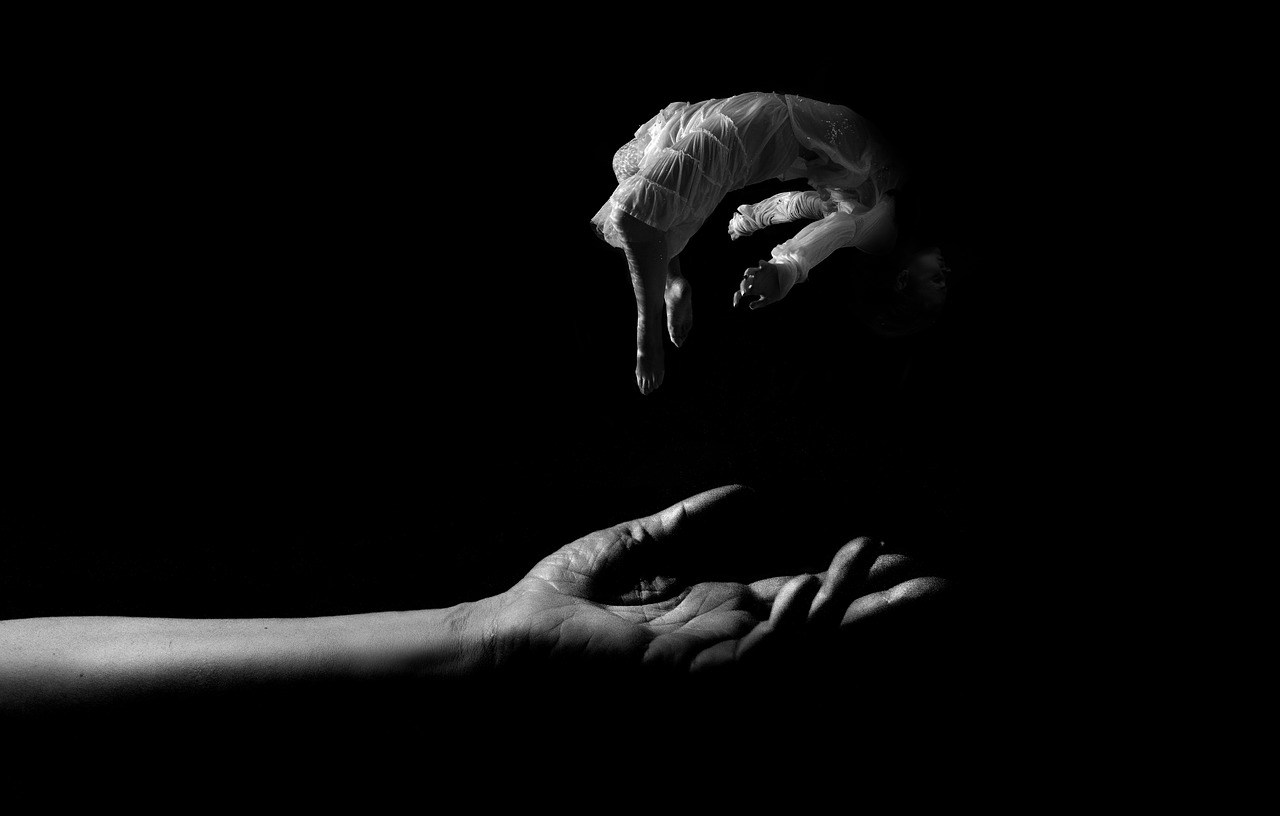
Isolation vs. Solidarity
In The Plague, Albert Camus masterfully navigates the complex emotional landscape of human existence, particularly focusing on the tension between isolation and solidarity. As the plague sweeps through the town of Oran, individuals are faced with a profound sense of isolation. This isolation is not merely physical; it seeps into the very fabric of their beings, creating a chasm that separates them from their loved ones, their routines, and even their own sense of self. Imagine being stranded on an island, surrounded by water but unable to connect with anyone else. This metaphor captures the essence of the characters’ struggles as they grapple with the reality of their situation.
However, Camus also highlights that amidst this overwhelming isolation, there emerges a powerful urge for solidarity. The characters find that their shared suffering can forge connections that transcend their individual experiences. The plague acts as a catalyst, compelling the townspeople to come together in unexpected ways. They realize that while they may be physically distanced, their experiences and emotions resonate with one another. This collective struggle against a common enemy—the plague—creates a bond that fosters a sense of community and purpose.
Take, for instance, the character of Dr. Rieux, who embodies the spirit of solidarity. He tirelessly works to save lives, often at the expense of his own well-being. His actions serve as a beacon of hope, inspiring others to join him in the fight against the plague. In contrast, characters who succumb to despair often isolate themselves further, demonstrating how the choice to connect or withdraw can significantly impact one’s experience in times of crisis.
Ultimately, Camus suggests that while isolation can lead to despair, solidarity offers a path toward resilience. The characters’ journeys illustrate that embracing connections with others can provide strength and meaning, even in the face of existential dread. This tension between isolation and solidarity resonates deeply with readers, prompting reflection on how we cope with our own struggles in a chaotic world.
- What is the main theme of isolation vs. solidarity in The Plague?
The theme explores how individuals cope with isolation during a crisis and how shared suffering can foster community and connection. - How does Camus portray Dr. Rieux in relation to solidarity?
Dr. Rieux exemplifies solidarity through his commitment to helping others, showcasing the strength found in community during challenging times. - Can isolation be beneficial in any way according to the novel?
While isolation leads to despair, it can also prompt self-reflection and personal growth, though Camus ultimately emphasizes the importance of solidarity.

Personal Responsibility
In The Plague, Albert Camus intricately weaves the theme of personal responsibility throughout the narrative, compelling readers to reflect on the choices that define human existence. Each character is thrust into a world where the absurdity of life becomes glaringly evident, and they must grapple with the weight of their decisions amidst the chaos of a plague-ridden town. This struggle is not merely a backdrop; it is the crux of the existential crisis that Camus so masterfully portrays.
Take, for instance, Dr. Rieux, who embodies the essence of personal responsibility. He does not shy away from his duty to care for the sick, despite the overwhelming odds stacked against him. His actions illustrate a profound commitment to humanity, demonstrating that even in a world stripped of meaning, individuals can choose to act with purpose. This is a powerful reminder that our choices, however small, can ripple through the lives of others, creating a tapestry of interconnectedness.
Moreover, the characters in The Plague are faced with moral dilemmas that force them to confront their own values and beliefs. The question arises: what does it mean to act responsibly in a world devoid of inherent meaning? Camus suggests that it is through our actions and choices that we carve out our own significance. This notion resonates deeply, as it prompts readers to consider their own lives and the responsibilities they bear towards themselves and others.
As the plague spreads, the community is thrust into a state of panic and despair, yet it is in these moments of crisis that the importance of personal responsibility becomes even more pronounced. Characters like Tarrou and Rambert grapple with their own motivations—do they flee to safety, or do they stay and fight against the tide of suffering? Their choices reflect a broader existential question: can we find meaning in our actions, even when faced with the absurdity of our situation?
Ultimately, Camus challenges us to embrace our freedom and the responsibility that comes with it. In a world where external structures of meaning are dismantled, individuals must forge their own paths. This idea can be unsettling, yet it is also liberating. The burden of choice is heavy, but it is also what makes us human. By acknowledging our personal responsibility, we can begin to navigate the complexities of existence with a sense of agency and purpose.
- What is the main theme of personal responsibility in The Plague?
The theme of personal responsibility in The Plague revolves around characters facing moral dilemmas and the choices they make in response to the chaos of the plague, emphasizing the importance of individual actions in creating meaning. - How does Camus portray the concept of freedom in relation to responsibility?
Camus illustrates that with freedom comes the weight of responsibility, as individuals must navigate their choices and the impact of those choices in a world that lacks inherent meaning. - Can you give an example of a character that embodies personal responsibility?
Dr. Rieux is a prime example, as he dedicates himself to caring for the sick and confronting the plague head-on, embodying the essence of personal responsibility in the face of despair.
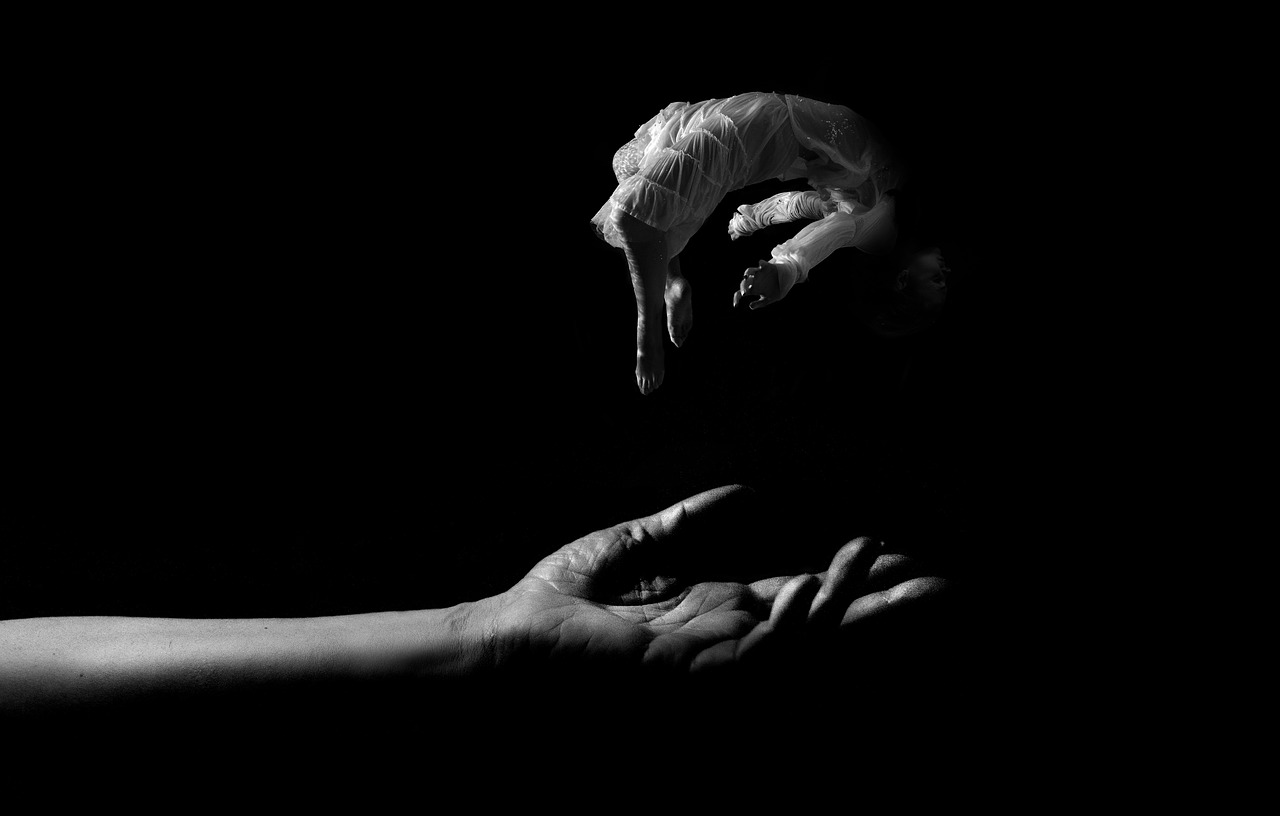
Search for Meaning
In The Plague, the characters embark on a profound quest for meaning amidst the chaos and despair that surrounds them. This search is not merely a backdrop; it is the very essence of their existence. Camus masterfully illustrates that in a world that often feels indifferent and chaotic, individuals are compelled to create their own purpose. This idea resonates deeply with existentialist philosophy, which posits that life lacks intrinsic meaning and that it is up to each person to forge their own path.
As the plague ravages the town of Oran, the characters' responses to their circumstances reveal a spectrum of approaches to finding meaning. For instance, Dr. Rieux, the protagonist, dedicates himself to alleviating the suffering of others, showcasing how acts of compassion can serve as a source of purpose. His commitment, despite the overwhelming odds, exemplifies the idea that even in the face of absurdity, one can still choose to act meaningfully.
Similarly, characters like Tarrou and Rambert grapple with their own existential dilemmas. Tarrou, who documents the plague's impact, reflects on the nature of suffering and the human condition, suggesting that understanding our struggles can lead to a deeper appreciation of life. On the other hand, Rambert initially seeks to escape the plague-stricken town to reunite with his lover, but ultimately decides to stay and fight against the epidemic. His transformation highlights how the search for meaning often requires confronting uncomfortable truths and making sacrifices.
Moreover, Camus emphasizes that the search for meaning is not a solitary journey. The characters' interactions and the relationships they build throughout the crisis illustrate that shared experiences can foster a sense of belonging and purpose. In moments of despair, they find solace in each other, proving that human connections can illuminate the path to understanding and significance. This collective struggle against the plague serves as a reminder that while existence may be absurd, the bonds formed through shared suffering can create a tapestry of meaning that enriches life.
Ultimately, the search for meaning in The Plague is a testament to the resilience of the human spirit. It invites readers to reflect on their own lives and the ways in which they derive purpose. Are we not all, in our own ways, navigating the absurdity of existence? As we face our own challenges, the novel encourages us to seek meaning not just in grand gestures, but in the everyday choices we make and the connections we nurture. In a world that often feels chaotic, perhaps the most profound meaning lies in the simple act of living with intention and compassion.
- What is the main theme of The Plague?
The main theme revolves around the struggle for meaning in a chaotic and indifferent world, particularly through the lens of existentialism. - How does Camus portray human resilience?
Camus illustrates human resilience through characters who confront despair and suffering, finding strength in their actions and connections with others. - What does the plague symbolize in the novel?
The plague symbolizes the absurdity of life and the inevitability of death, serving as a catalyst for the characters' search for meaning. - How do relationships influence the characters' search for meaning?
Relationships provide support and a sense of community, showing that shared experiences can help individuals find purpose amidst suffering.

The Plague
This article explores the existentialist themes present in Albert Camus's novel , examining how they reflect human existence, absurdity, and the search for meaning in a chaotic world.
In , Camus illustrates the concept of absurdity, showcasing how the randomness of life challenges individuals to find meaning despite overwhelming chaos and suffering. The characters in the story face a relentless and indifferent universe, much like a ship lost at sea, tossed around by waves of despair. This absurdity is not just a backdrop; it is the very essence that drives the narrative forward, forcing characters to confront the reality that their existence may lack inherent meaning.
The novel highlights the resilience of humanity in the face of despair, emphasizing the strength of the human spirit when confronted with existential crises and the inevitability of death. Camus crafts a narrative that is both a reflection of human suffering and a testament to the indomitable will to survive. The characters, much like a phoenix rising from the ashes, demonstrate that even when faced with the most harrowing circumstances, there is a flicker of hope that ignites the desire to persevere.
Camus portrays the collective experience of the plague, demonstrating how shared suffering can unite individuals and foster a sense of community, even amidst existential dread. In the face of a common enemy, the townspeople of Oran band together, illustrating that while isolation can be a natural response to fear, solidarity becomes a lifeline. This shared struggle is akin to a tapestry woven from the threads of individual experiences, creating a rich narrative that underscores the importance of human connection.
The tension between isolation and solidarity is a recurring theme, illustrating how individuals cope with existential fears through connections with others while grappling with their solitude. Characters oscillate between seeking comfort in companionship and retreating into their own existential bubbles. This duality is strikingly relatable; it's as if Camus is holding up a mirror to our own lives, prompting us to reflect on how we navigate our relationships in times of crisis.
The narrative underscores the importance of personal responsibility, as characters must confront their choices and actions in a world devoid of inherent meaning. Each decision carries weight, much like a pebble creating ripples in a pond. Camus invites readers to ponder: what does it mean to be responsible in a world where the rules seem arbitrary? This theme resonates deeply, as it challenges us to consider our own roles and the impact we have on those around us.
Characters in embark on a quest for meaning, reflecting existentialist beliefs that individuals must create their own purpose in an indifferent universe. As they navigate the chaos, they are akin to explorers in uncharted waters, seeking a beacon of hope amidst the storm. This search is not linear; it is fraught with setbacks and moments of doubt, yet it is this very journey that illuminates their paths and fosters growth.
Death serves as a central theme in the novel, prompting characters to confront their mortality and consider the implications of their existence in a world marked by suffering. Camus does not shy away from the grim reality of death; rather, he uses it as a catalyst for profound reflection. The characters’ grappling with their own mortality becomes a poignant reminder of the fragility of life, pushing them to cherish the fleeting moments of joy and connection.
Suffering is depicted as an essential component of the human experience, challenging characters to find significance and understanding through their struggles with pain and loss. Camus suggests that through suffering, individuals can uncover deeper truths about themselves and the world around them. This notion resonates with many, as it reflects the idea that our most profound growth often emerges from our darkest times.
Camus emphasizes existential freedom, illustrating how characters navigate their choices and the consequences of their actions in a world where traditional moral frameworks are absent. This freedom can be both exhilarating and terrifying, much like standing at the edge of a cliff, staring into the abyss. The characters learn that with freedom comes responsibility, and it is through their choices that they carve out their identities in an otherwise chaotic existence.
- What are the main themes of The Plague? The main themes include absurdity, human resilience, collective experience, isolation vs. solidarity, personal responsibility, the search for meaning, confrontation with death, the role of suffering, and existential freedom.
- How does Camus portray the concept of absurdity? Camus illustrates absurdity through the randomness of life and the characters' struggles to find meaning amidst chaos.
- What role does suffering play in the novel? Suffering is depicted as a fundamental aspect of the human experience, prompting characters to seek understanding and significance through their pain.
- How do characters respond to their mortality in The Plague? Characters confront their mortality, leading them to reflect on the implications of their existence and the importance of human connections.

embark on a quest for meaning, reflecting existentialist beliefs that individuals must create their own purpose in an indifferent universe.
This article explores the existentialist themes present in Albert Camus's novel The Plague, examining how they reflect human existence, absurdity, and the search for meaning in a chaotic world.
In The Plague, Camus illustrates the concept of absurdity, showcasing how the randomness of life challenges individuals to find meaning despite overwhelming chaos and suffering.
The novel highlights the resilience of humanity in the face of despair, emphasizing the strength of the human spirit when confronted with existential crises and the inevitability of death.
Camus portrays the collective experience of the plague, demonstrating how shared suffering can unite individuals and foster a sense of community, even amidst existential dread.
The tension between isolation and solidarity is a recurring theme, illustrating how individuals cope with existential fears through connections with others while grappling with their solitude.
The narrative underscores the importance of personal responsibility, as characters must confront their choices and actions in a world devoid of inherent meaning.
Characters in The Plague embark on a quest for meaning, reflecting existentialist beliefs that individuals must create their own purpose in an indifferent universe.
In this quest for meaning, the characters often find themselves at a crossroads, where the absurdity of their circumstances forces them to confront fundamental questions about existence. For instance, Dr. Rieux, one of the central figures in the novel, represents the struggle against the absurd. He dedicates himself to fighting the plague, not because he expects to win, but because he believes in the value of fighting itself. This idea resonates deeply with existentialist philosophy, which posits that meaning is not given but must be created through action and choice.
Throughout the narrative, various characters grapple with their own interpretations of purpose. For example, Tarrou, who documents the plague's impact, seeks to understand his own existence by reflecting on the suffering around him. His journey illustrates a critical point: in a world that often feels indifferent, the search for meaning can be both a personal and collective endeavor. Each character's response to the plague becomes a microcosm of the broader human experience, showcasing how individuals can forge their own paths even when faced with overwhelming despair.
Ultimately, the quest for meaning in The Plague serves as a powerful reminder that while life may seem absurd and chaotic, it is through our choices and actions that we can create significance. This theme resonates with readers, encouraging them to reflect on their own lives and consider how they might find purpose amidst the uncertainties of existence.
Death serves as a central theme in the novel, prompting characters to confront their mortality and consider the implications of their existence in a world marked by suffering.
Suffering is depicted as an essential component of the human experience, challenging characters to find significance and understanding through their struggles with pain and loss.
Camus emphasizes existential freedom, illustrating how characters navigate their choices and the consequences of their actions in a world where traditional moral frameworks are absent.
- What are the main existential themes in The Plague?
The novel explores absurdity, resilience, personal responsibility, and the search for meaning in the face of suffering. - How does Camus portray human resilience?
Characters demonstrate resilience by confronting despair and finding strength in community and personal choices. - What role does suffering play in the narrative?
Suffering is depicted as a crucial aspect of the human experience, prompting characters to seek understanding and significance.

Confrontation with Death
In The Plague, death is not merely a backdrop; it is a central character that shapes the narrative and the lives of the inhabitants of Oran. Camus masterfully weaves the theme of mortality throughout the story, compelling the characters—and readers alike—to confront their own existence and the transient nature of life. The plague serves as a harsh reminder that death is inescapable, lurking at the edges of our daily lives, and it often takes a crisis to force us into a confrontation with our mortality.
As the disease spreads, the characters grapple with their fears and anxieties about death. Take Dr. Rieux, for instance, who embodies the struggle against the inevitability of death. He is not just fighting the plague; he is battling the very essence of mortality. His dedication to saving lives is a poignant reminder of the human spirit's resilience in the face of despair. Yet, despite his efforts, he is often met with the harsh reality that death is beyond his control. This struggle raises an important question: How do we find meaning in a life that is so fleeting?
Moreover, the characters' responses to death reveal their varying philosophies and coping mechanisms. For some, like Tarrou, death becomes a catalyst for deeper reflection and existential inquiry. Tarrou's meditations on life and death lead him to understand that accepting the inevitability of death can liberate one from fear. In contrast, others may react with denial or despair, illustrating a spectrum of human responses to the ultimate fate that awaits us all.
Camus also uses the plague as a metaphor for the arbitrary nature of death. It strikes indiscriminately, reminding us that life is unpredictable and often unfair. This randomness of death challenges the characters to find significance in their struggles. They must confront the absurdity of existence, where suffering and death coexist with moments of beauty and joy. In this chaotic dance of life and death, the characters learn to cherish their relationships and the fleeting moments of happiness that punctuate their lives.
Ultimately, the confrontation with death in The Plague serves as a profound exploration of the human condition. It urges readers to reflect on their own lives and the choices they make in the face of mortality. Are we living authentically, or are we merely going through the motions? The novel prompts us to examine our values and priorities, pushing us to seek meaning and connection in a world that often feels indifferent.
In summary, the theme of death in Camus's work is not just a grim reminder of our mortality; it is an invitation to live fully and intentionally. By embracing the reality of death, we can cultivate a deeper appreciation for life itself. The characters in The Plague teach us that while we may not control the circumstances of our existence, we have the power to choose how we respond to them. This confrontation with death ultimately leads to a richer, more meaningful experience of life.
- What is the main theme of death in The Plague? The theme of death in the novel serves as a central element that prompts characters to confront their mortality and find meaning in their existence.
- How do the characters respond to the plague? Characters respond to the plague with a range of emotions, from despair and denial to resilience and reflection, showcasing the complexity of human responses to death.
- What does Camus suggest about the nature of life and death? Camus suggests that life is unpredictable and often absurd, but by accepting the inevitability of death, individuals can find greater meaning and authenticity in their lives.
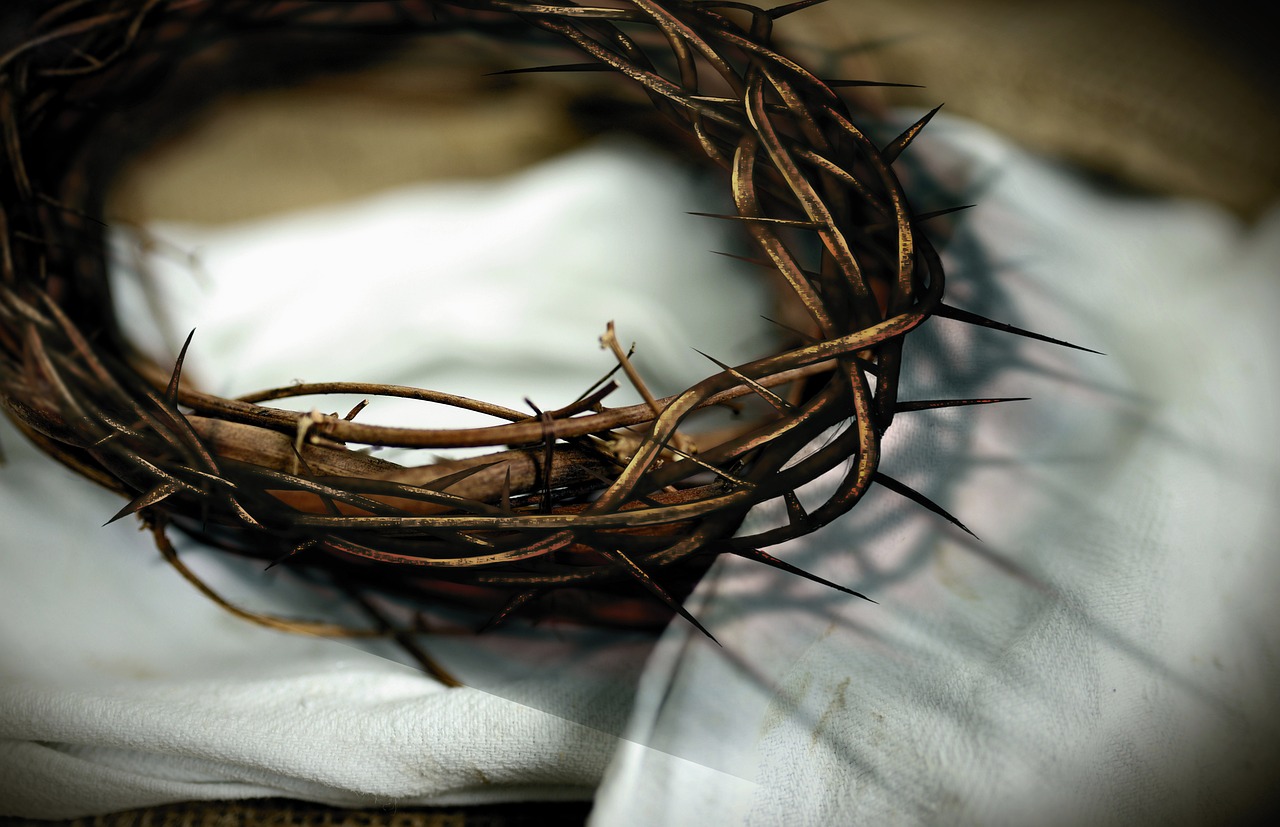
The Role of Suffering
In The Plague, Albert Camus delves deep into the essence of suffering, portraying it as a fundamental aspect of the human condition. Suffering is not merely a backdrop against which the story unfolds; rather, it is the very fabric that weaves together the characters' experiences and transformations. Through the lens of the plague, Camus illustrates how the characters grapple with their pain, forcing them to confront their vulnerabilities and the stark realities of existence. It's almost as if suffering acts as a mirror, reflecting the raw and unfiltered truths of life that many prefer to ignore.
One of the most striking aspects of suffering in the novel is how it serves as a catalyst for personal growth and self-discovery. The characters are thrust into a world where they must navigate through despair and uncertainty. In this chaotic environment, they are compelled to examine their beliefs, values, and the very essence of their humanity. For instance, Dr. Rieux, the protagonist, embodies this struggle as he battles not only the plague but also his own existential doubts. His journey highlights the idea that through suffering, individuals can uncover deeper meanings and insights about themselves and their place in the universe.
Moreover, Camus suggests that suffering can foster a sense of solidarity among individuals. As the plague ravages the town, the shared experience of pain unites the characters in a profound way. They find comfort in one another, forming bonds that transcend their individual struggles. This collective suffering becomes a source of strength, illustrating that while pain is often isolating, it can also be a bridge that connects people. In moments of despair, characters like Tarrou and Rieux discover that their shared fight against the plague not only alleviates their loneliness but also ignites a sense of purpose and community.
However, it’s essential to recognize that suffering in Camus's narrative is not glorified. Instead, it is presented as an inevitable part of life that must be acknowledged and confronted. The characters often grapple with the futility of their efforts against the plague, leading to a sense of absurdity. This brings forth a critical question: Does suffering have intrinsic meaning, or is it merely a chaotic force that disrupts our lives? Camus leaves this question open-ended, inviting readers to ponder the role of suffering in their own lives.
In summary, the role of suffering in The Plague is multifaceted. It acts as a mirror reflecting the characters' inner struggles, a catalyst for growth, and a unifying force among individuals. Camus masterfully illustrates that while suffering is an inescapable part of the human experience, it is also an opportunity for introspection and connection. As readers, we are left to contemplate how we respond to suffering in our own lives and what it reveals about our humanity.
- What is the main theme of suffering in The Plague?
The main theme of suffering in the novel revolves around its role as a catalyst for personal growth, self-discovery, and the unifying force that connects individuals in times of crisis.
- How does Camus portray the relationship between suffering and community?
Camus illustrates that shared suffering can foster a sense of solidarity among individuals, helping them find strength and purpose in their collective struggle against despair.
- Is suffering depicted as meaningful in The Plague?
While suffering is portrayed as an inevitable part of life, Camus leaves the question of its intrinsic meaning open-ended, encouraging readers to reflect on their own experiences with pain.
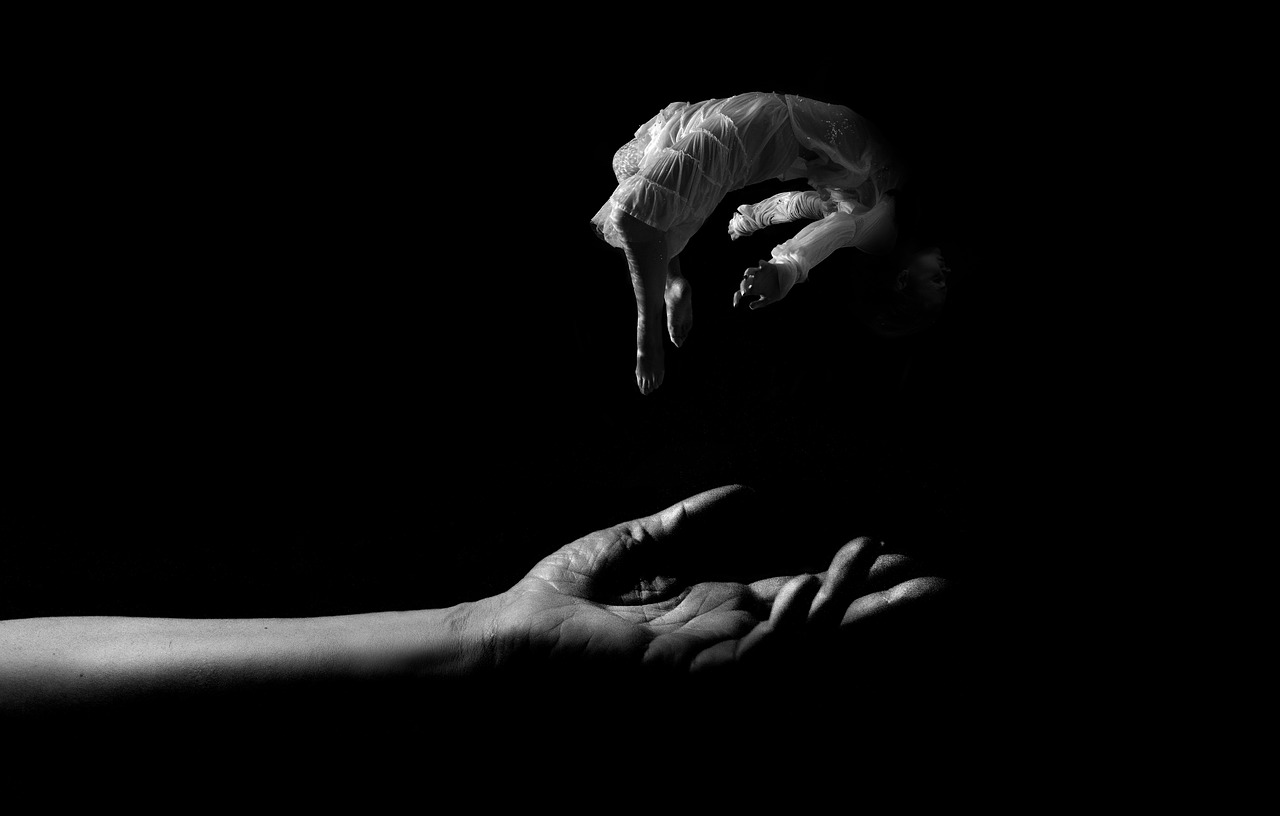
Existential Freedom
In The Plague, Albert Camus delves into the profound concept of , which is essentially the idea that we are free to make our own choices, even in a world that often seems chaotic and indifferent. This notion is not just a philosophical abstraction; it is a lived reality for the characters who navigate the treacherous waters of a plague-stricken town. They are faced with choices that carry weight and significance, forcing them to confront the consequences of their actions. Camus suggests that while we may not have control over external circumstances, we do possess the power to shape our responses to them.
Take, for instance, the character of Dr. Rieux, who embodies the struggle against despair. His journey illustrates that freedom involves not just making choices, but also accepting the responsibility that comes with them. He chooses to fight against the plague, despite knowing that his efforts may ultimately be futile. This illustrates a key tenet of existentialism: the idea that one must act in the face of absurdity. Rieux's commitment to his patients and his refusal to succumb to hopelessness exemplify how individuals can assert their freedom through meaningful action.
Moreover, Camus emphasizes that existential freedom is intertwined with the recognition of our mortality. The characters grapple with the reality of death, which serves as a constant reminder that life is fleeting. This awareness can be paralyzing, but it can also be liberating. In recognizing that life is temporary, individuals may find the motivation to live more authentically and fully. They are compelled to ask themselves: What truly matters? What legacy do I want to leave behind? This quest for authenticity is a driving force in the narrative.
Throughout the novel, Camus presents a dichotomy between those who embrace their freedom and those who shy away from it. The former group, like Rieux and Tarrou, actively engage in the struggle against the plague, finding meaning in their actions. In contrast, characters such as Cottard, who initially seeks to profit from the suffering of others, represent a rejection of personal responsibility. His eventual descent into madness serves as a cautionary tale about the dangers of evading one’s freedom and the responsibilities that come with it.
Ultimately, in The Plague is about more than just making choices; it's about the courage to face the absurdity of existence head-on. Camus invites readers to reflect on their own lives and consider how they exercise their freedom in a world that often feels devoid of meaning. The characters’ journeys remind us that while we may not control the circumstances of our lives, we can control our responses and the paths we choose to take. In this way, even amidst the chaos of a plague, there lies the potential for profound personal transformation.
- What is existential freedom? Existential freedom refers to the idea that individuals have the power to make their own choices and shape their lives, even in the face of absurdity and chaos.
- How does Camus illustrate existential freedom in The Plague? Camus illustrates existential freedom through characters like Dr. Rieux, who actively choose to fight against despair, accepting the responsibility of their actions.
- What role does mortality play in existential freedom? Mortality serves as a reminder of life’s fleeting nature, prompting characters to live authentically and make meaningful choices.
- How do different characters respond to existential freedom in the novel? Some characters embrace their freedom and responsibility, while others evade it, leading to different outcomes in their lives.
Frequently Asked Questions
- What are the main existentialist themes in The Plague?
The Plague delves into several existentialist themes, including the absurdity of life, human resilience, the search for meaning, and the confrontation with death. Camus uses the backdrop of a devastating plague to explore how individuals navigate chaos, suffering, and the quest for purpose in an indifferent universe.
- How does Camus illustrate the concept of absurdity?
Camus illustrates absurdity by showcasing the randomness and unpredictability of life through the plague's impact on the town. Characters are forced to confront the chaotic nature of existence, prompting them to seek meaning and make sense of their experiences despite the overwhelming despair surrounding them.
- What role does human resilience play in the novel?
Human resilience is a central theme in The Plague, highlighting the strength of the human spirit when faced with despair. Characters band together, support one another, and find ways to cope with their suffering, demonstrating that even in the darkest times, hope and solidarity can emerge.
- How does the theme of isolation versus solidarity manifest in the story?
The tension between isolation and solidarity is evident as characters grapple with their fears and loneliness while also forming connections with others. This duality illustrates how shared suffering can foster a sense of community, allowing individuals to confront their existential dread together.
- What does The Plague say about personal responsibility?
Personal responsibility is a key element in The Plague, as characters are faced with choices that define their actions and impact others. Camus emphasizes that in a world devoid of inherent meaning, individuals must take ownership of their decisions and the consequences that follow.
- How do characters in The Plague search for meaning?
Characters embark on a quest for meaning throughout the novel, reflecting the existential belief that individuals must create their own purpose. They engage in introspection and dialogue, exploring their values and beliefs as they navigate the challenges posed by the plague.
- What is the significance of death in The Plague?
Death serves as a crucial theme, prompting characters to confront their mortality and the implications of their existence. The inevitability of death compels them to reflect on their lives and the choices they make, adding depth to their struggle for meaning amidst suffering.
- How does suffering contribute to the human experience in the novel?
Suffering is portrayed as an essential part of the human experience, challenging characters to find significance in their pain and loss. Camus suggests that through struggle, individuals can gain a deeper understanding of themselves and the world around them.
- What does existential freedom mean in the context of The Plague?
Existential freedom in The Plague refers to the characters' ability to navigate their choices and the consequences of their actions in a world lacking traditional moral frameworks. Camus illustrates that true freedom comes with the responsibility of making choices that reflect one's values and beliefs.






